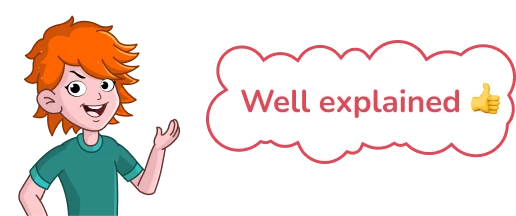
 120 Learners
120 LearnersLast updated on May 26th, 2025

Cube Root of 124

A number we multiply by itself three times to get the original number is its cube root. It has various uses in real life, such as finding the volume of cube-shaped objects and designing structures. We will now find the cube root of 124 and explain the methods used.
What is the Cube Root of 124?
We have learned the definition of the cube root. Now, let’s learn how it is represented using a symbol and exponent. The symbol we use to express the cube root is the radical sign (∛), and the exponent we use is ⅓. In exponential form, ∛124 is written as 124(1/3). The cube root is just the opposite operation of finding the cube of a number. For example: Assume ‘y’ as the cube root of 124, then y³ can be 124. Since the cube root of 124 is not an exact value, we can write it as approximately 4.989.
Finding the Cube Root of 124
Finding the cube root of a number is to identify the number that must be multiplied three times resulting in the target number. Now, we will go through the different ways to find the cube root of 124. The common methods we follow to find the cube root are given below:
- Prime factorization method
- Approximation method
- Subtraction method
- Halley’s method
To find the cube root of a non-perfect cube number, we often follow Halley’s method. Since 124 is not a perfect cube, we use Halley’s method.
Cube Root of 124 by Halley’s Method
Let's find the cube root of 124 using Halley’s method.
The formula is ∛a ≅ x((x³ + 2a) / (2x³ + a))
where: a = the number for which the cube root is being calculated
x = the nearest perfect cube Substituting,
a = 124; x = 5
∛a ≅ 5((5³ + 2 × 124) / (2 × 5³ + 124))
∛124 ≅ 5((125 + 248) / (250 + 124))
∛124 ≅ 4.989
The cube root of 124 is approximately 4.989.

Common Mistakes and How to Avoid Them in the Cube Root of 124
Finding the perfect cube of a number without any errors can be a difficult task for students. This happens for many reasons. Here are a few mistakes the students commonly make and the ways to avoid them:

Cube Root of 124 Examples:

Problem 1
Imagine you have a cube-shaped toy that has a total volume of 124 cubic centimeters. Find the length of one side of the cube equal to its cube root.

Side of the cube = ∛124 = 4.989 units
Explanation
To find the side of the cube,
we need to find the cube root of the given volume.
Therefore, the side length of the cube is approximately 4.989 units.

Problem 2
A company manufactures 124 cubic meters of material. Calculate the amount of material left after using 24 cubic meters.

The amount of material left is 100 cubic meters.
Explanation
To find the remaining material,
we need to subtract the used material from the total amount:
124 - 24 = 100 cubic meters.

Problem 3
A bottle holds 124 cubic meters of volume. Another bottle holds a volume of 20 cubic meters. What would be the total volume if the bottles are combined?

The total volume of the combined bottles is 144 cubic meters.
Explanation
Explanation: Let’s add the volume of both bottles: 124 + 20 = 144 cubic meters.

Problem 4
When the cube root of 124 is multiplied by 2, calculate the resultant value. How will this affect the cube of the new value?

2 × 4.989 = 9.978 The cube of 9.978 ≈ 993.3
Explanation
When we multiply the cube root of 124 by 2, it results in a significant increase in the volume because the cube increases exponentially.

Problem 5
Find ∛(60 + 64).

∛(60 + 64) = ∛124 ≈ 4.989
Explanation
As shown in the question ∛(60 + 64), we can simplify that by adding them.
So, 60 + 64 = 124.
Then we use this step: ∛124 ≈ 4.989 to get the answer.


FAQs on 124 Cube Root
1.Can we find the Cube Root of 124?
2.Why is Cube Root of 124 irrational?
3.Is it possible to get the cube root of 124 as an exact number?
4.Can we find the cube root of any number using prime factorization?
5.Is there any formula to find the cube root of a number?
6.How does learning Algebra help students in Qatar make better decisions in daily life?
7.How can cultural or local activities in Qatar support learning Algebra topics such as Cube Root of 124?
8.How do technology and digital tools in Qatar support learning Algebra and Cube Root of 124?
9.Does learning Algebra support future career opportunities for students in Qatar?
Important Glossaries for Cube Root of 124
- Cube root: The number that is multiplied three times by itself to get the given number is the cube root of that number.
- Perfect cube: A number is a perfect cube when it is the product of multiplying a number three times by itself. A perfect cube always results in a whole number. For example: 2 × 2 × 2 = 8, therefore, 8 is a perfect cube.
- Exponent: The exponent form of the number denotes the number of times a number can be multiplied by itself. In 124(1/3), ⅓ is the exponent which denotes the cube root of 124.
- Radical sign: The symbol that is used to represent a root which is expressed as (∛).
- Irrational number: The numbers that cannot be put in fractional forms are irrational. For example, the cube root of 124 is irrational because its decimal form goes on continuously without repeating the numbers.
Explore More algebra
![Important Math Links Icon]() Previous to Cube Root of 124
Previous to Cube Root of 124
![Important Math Links Icon]() Next to Cube Root of 124
Next to Cube Root of 124


Jaskaran Singh Saluja
About the Author
Jaskaran Singh Saluja is a math wizard with nearly three years of experience as a math teacher. His expertise is in algebra, so he can make algebra classes interesting by turning tricky equations into simple puzzles.
Fun Fact
: He loves to play the quiz with kids through algebra to make kids love it.




